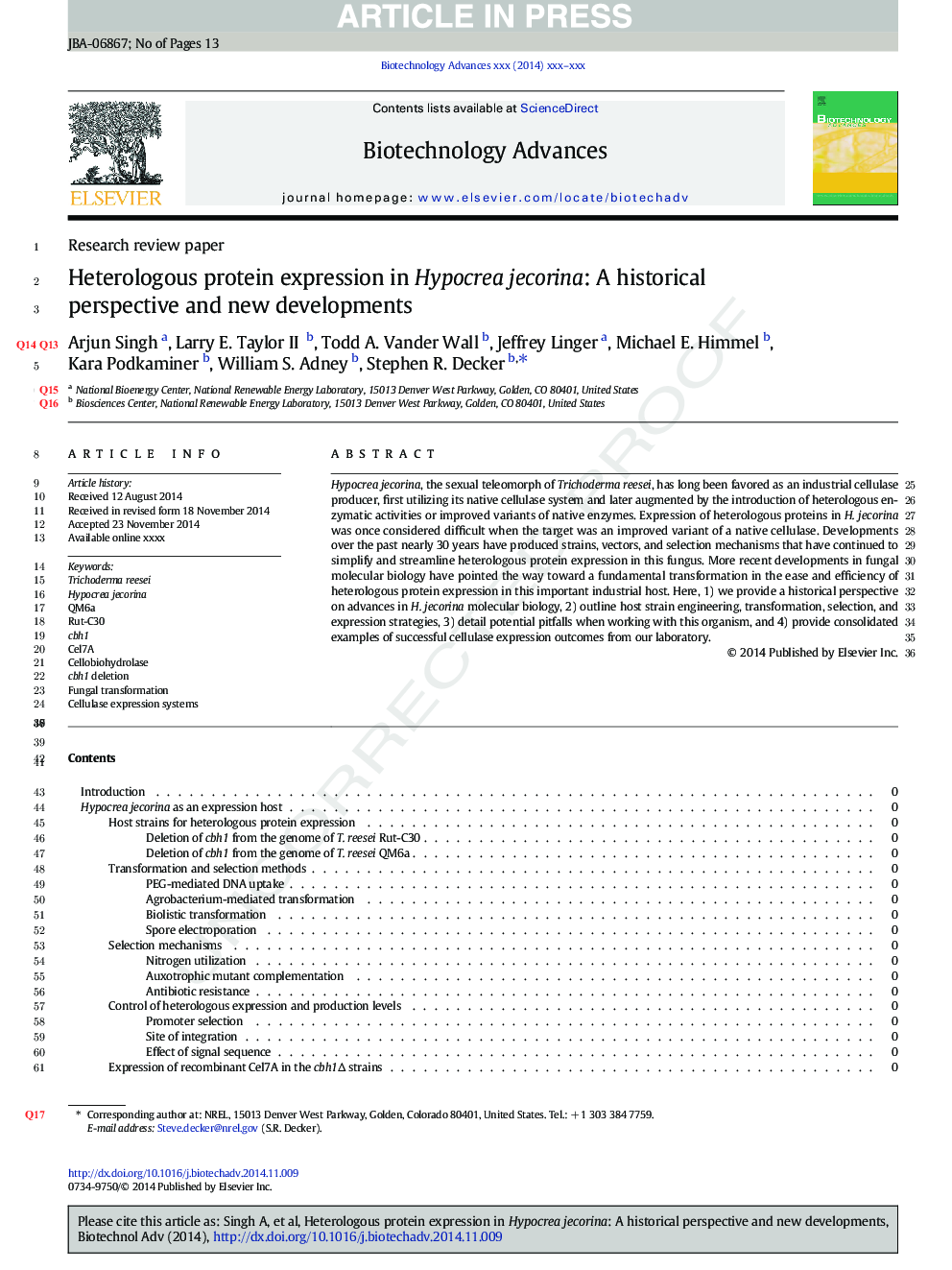| Article ID | Journal | Published Year | Pages | File Type |
|---|---|---|---|---|
| 10231487 | Biotechnology Advances | 2015 | 13 Pages |
Abstract
Hypocrea jecorina, the sexual teleomorph of Trichoderma reesei, has long been favored as an industrial cellulase producer, first utilizing its native cellulase system and later augmented by the introduction of heterologous enzymatic activities or improved variants of native enzymes. Expression of heterologous proteins in H. jecorina was once considered difficult when the target was an improved variant of a native cellulase. Developments over the past nearly 30Â years have produced strains, vectors, and selection mechanisms that have continued to simplify and streamline heterologous protein expression in this fungus. More recent developments in fungal molecular biology have pointed the way toward a fundamental transformation in the ease and efficiency of heterologous protein expression in this important industrial host. Here, 1) we provide a historical perspective on advances in H. jecorina molecular biology, 2) outline host strain engineering, transformation, selection, and expression strategies, 3) detail potential pitfalls when working with this organism, and 4) provide consolidated examples of successful cellulase expression outcomes from our laboratory.
Related Topics
Physical Sciences and Engineering
Chemical Engineering
Bioengineering
Authors
Arjun Singh, Larry E. II, Todd A. Vander Wall, Jeffrey Linger, Michael E. Himmel, Kara Podkaminer, William S. Adney, Stephen R. Decker,
